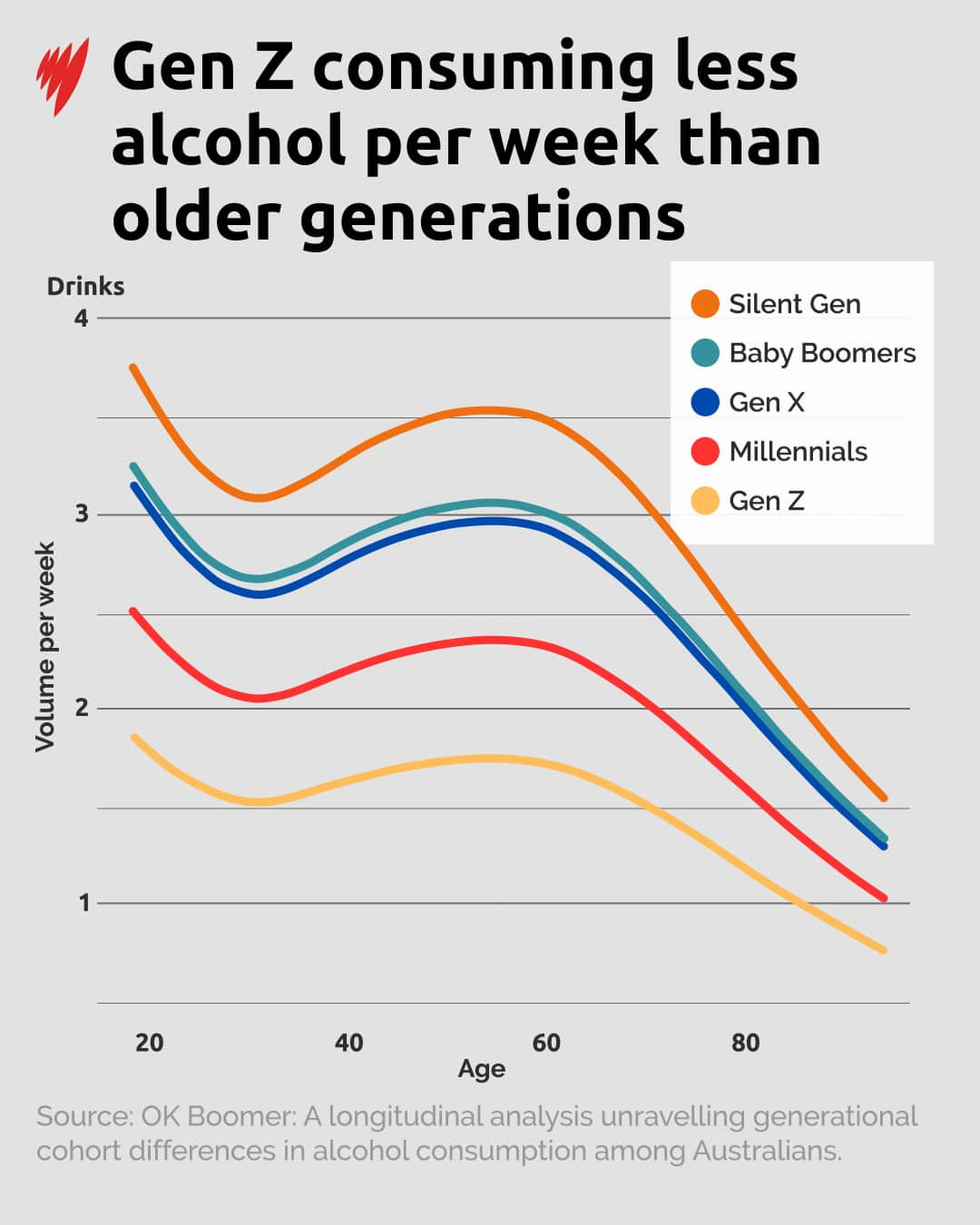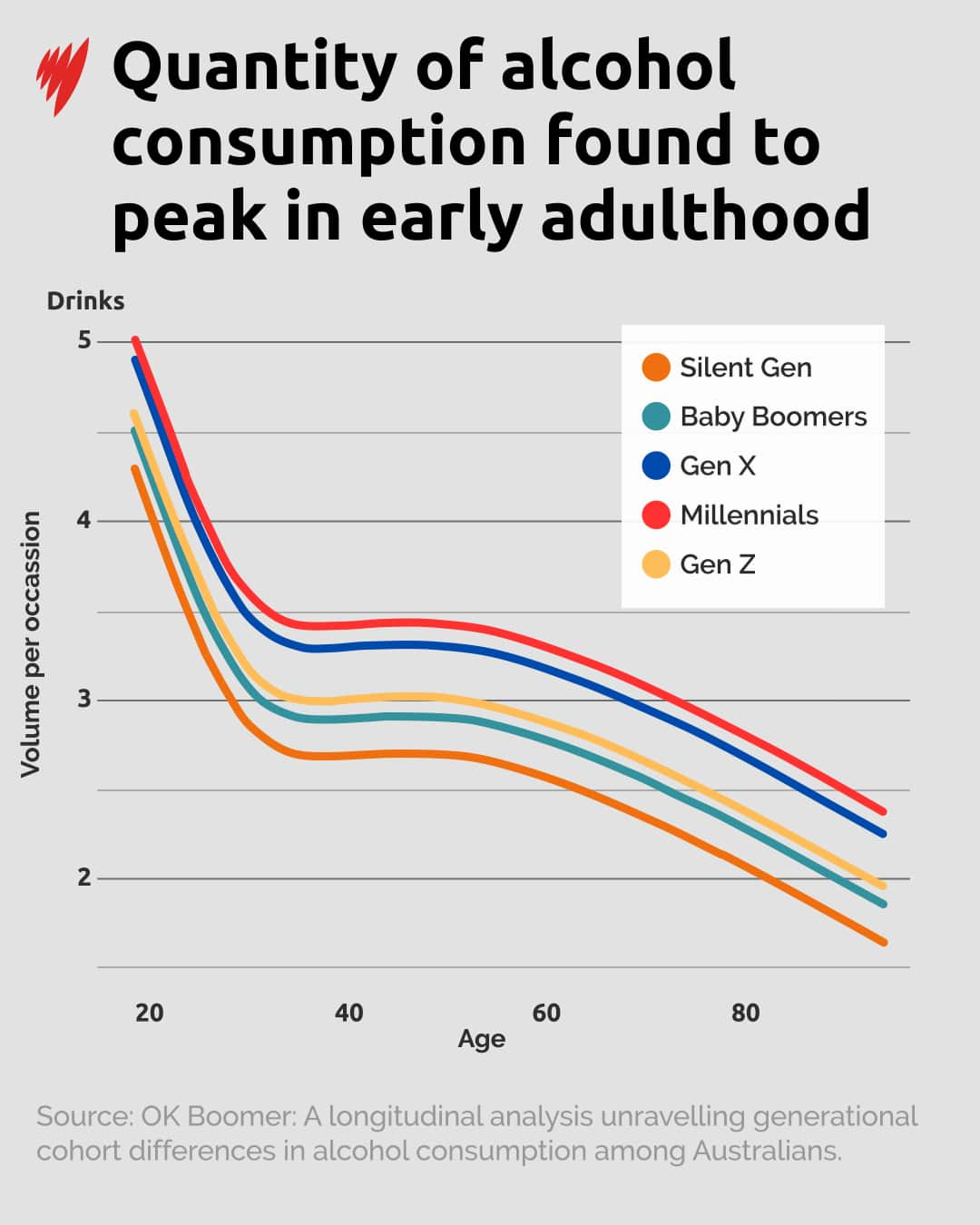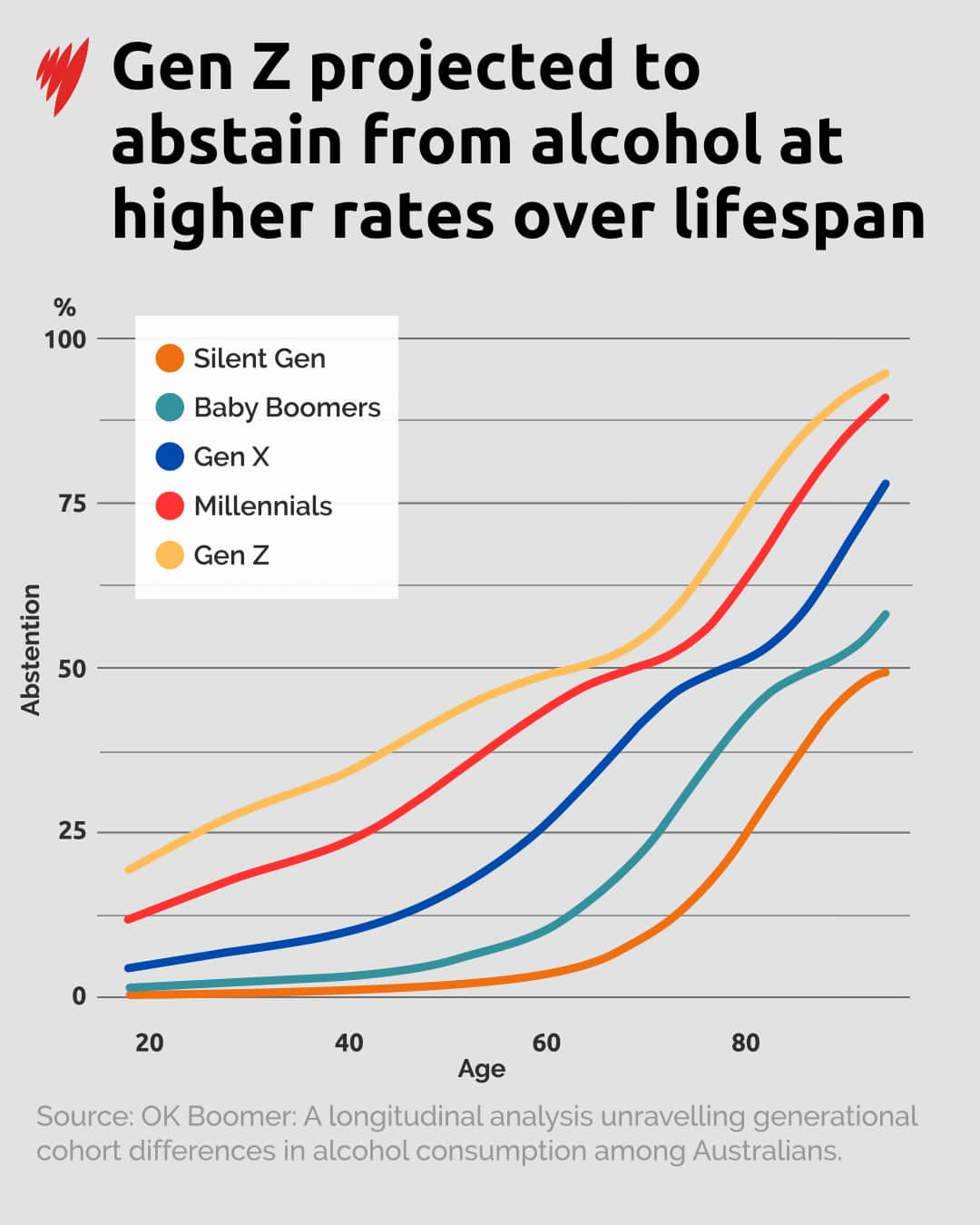Share this @internewscast.com
In addition, Gen Z Australians are consuming far less alcohol weekly than their older counterparts.

Source: SBS News
Lead author Gianluca Di Censo, a research fellow at the National Centre for Education and Training on Addiction (NCETA), told SBS News the first-of-its-kind study in Australia also assessed whether the trend would have a lasting impact.
“This is a promising trend as it indicates that reduced alcohol consumption isn’t just temporary; it is likely to continue throughout Gen Z’s lifetime,” a researcher noted.
However, Di Censo cautioned that unexpected societal or economic changes could alter this trajectory, but currently, “this appears to be a lasting change.”
What’s driving young people away from drinking?
“Gen Z feels they can socialize without drinking or being marginalized, and there’s a growing acceptance of sobriety alongside an emphasis on health and well-being,” Di Censo added.

Source: SBS News
Michael Livingston is an associate professor of alcohol research at Curtin University’s National Drug Research Institute.
“Those risk-taking behaviours that used to be kind of a fundamental part of that transition into adulthood, they’re not as prominent as they were.”
“One of the reasons people are drinking less is because they’re worrying more, and that’s obviously not a good outcome,” he said.
The implications of a cultural shift
Alcohol use is associated with various health problems, including several cancers, liver, and heart diseases. The World Health Organization estimated that alcohol use led to approximately 2.6 million deaths worldwide in 2019.
They propose that strategies such as minimum alcohol pricing, stricter advertising regulations, and focused health initiatives could reinforce this declining trend.
Is this happening anywhere else?
Back in 2001, 70 per cent of young people in Australia, aged between 14 and 17, said they had consumed alcohol in the past 12 months, according to the National Drug Strategy Household Survey. But that figure has dropped to about 30 per cent in recent years.

Source: SBS News
A similar trend exists across a number of high-income countries, including New Zealand, Canada, the United Kingdom and European countries like Sweden.
Livingston said it’s a common pattern across many countries, “with similar historic drinking cultures” to Australia.












